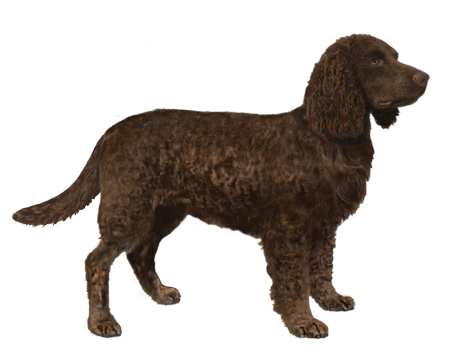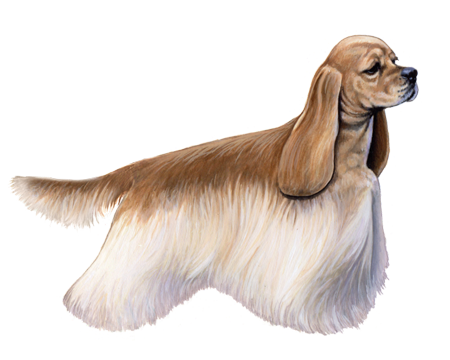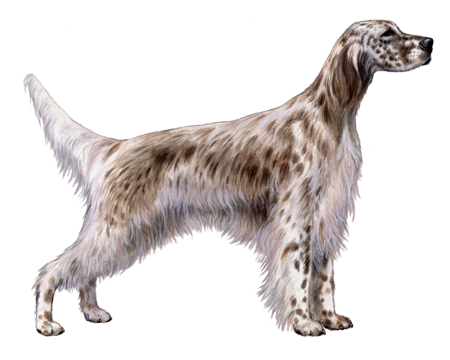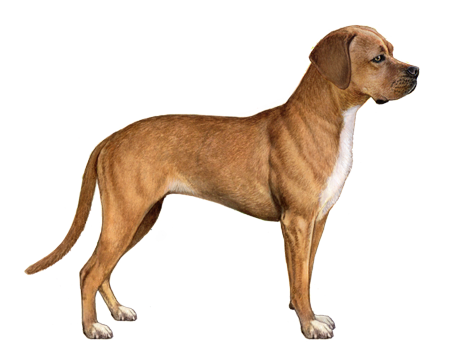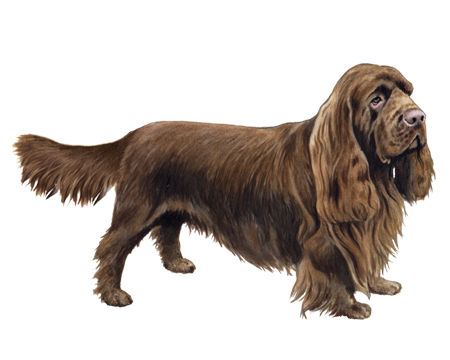
Spinone Italiano
The Spinone Italiano is an intelligent, easy-going, friendly breed that's fantastic for families. With a slow, gentle nature and ability to bond with people, Spinoni Italiani also make excellent service or therapy dogs.
Interested in discovering if your dog is a Spinone Italiano?
Check out Wisdom Panel's DNA tests.
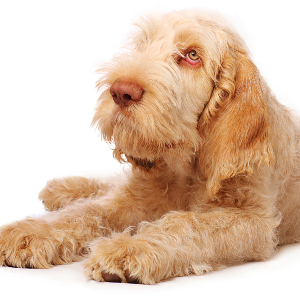
Spinone Italiano Traits
General Appearance
The Spinone Italiano has a muscular, robust body that enables it to work on almost any terrain all day long. This powerful build contrasts with a soft, almost human expression, and gentle eyes.
Coat and Coloring
The Spinone Italiano has a wiry, dense, single coat that offers protection from cold weather and thorny underbrush. The coat comes in various shades of brown to orange and has white markings. Roan and solid white coats are also possible. The Spinone's nose can be liver or pink.
Distinctive Physical Traits
The Spinone Italiano is best known (and admired) for its facial furnishings—stiff hair that forms eyebrows, a mustache, and a beard. The breed has an unusual profile, golden brown eyes, and triangular, pendulous ears. And big feet! Spinoni's large, rounded feet help keep them stable while trotting or galloping across rough terrain.
Spinone Italiano Temperament
The Spinone Italiano is a wonderful breed for families. These dogs are social, patient, and very devoted to their people. In fact, they love human companionship so much that they often follow family members wherever they go. No place—including the bathroom—is off-limits for a Spinone that wants to be with its pack.
Spinoni are gentle and friendly with kids and usually get along with other dogs. They're eager to please but also aren't shy about expressing their feelings. From low rumbles to intense barks, Spinoni often let everyone know how they feel about what's going on around them. The mailman is unlikely to sneak up on a house that has a Spinone.


Spinone Italiano History
In Italy's Piedmont region during the 15th century, the Spinone Italiano (Spinoni Italiani, when pluralized) was bred to be a pointer, hunter, and retriever. The name Spinone refers to "pino," the Piedmont region's thorny shrubs among which game would hide.
Experts don't agree on the exact origin of the Spinone Italiano. Most believe the breed descended from the Spanish Pointer, while others insist that its ancestry starts with the Russian Setter. Regardless, everyone considers the Spinone one of the first gundogs. Built for endurance and known for their great nose and soft mouth, these all-purpose dogs could hunt in any weather.
Like many breeds, the Spinone Italiano nearly died out during World War II due to a lack of breeding. But this breed survived by providing help in the war—hunting, tracking soldiers, and even keeping people warm in winter. After the war, a rescue movement formed and saved the Spinone by crossbreeding it with other wirehaired dogs.
The American Kennel Club recognized the Spinone Italiano in 2000. Though very popular in Europe, the breed has yet to catch on in the United States.
Spinone Italiano Care
Nutrition
Spinoni Italiani need high-quality food that's appropriate for their life stage (e.g., puppy, adult, senior) and activity level. Some Spinoni are picky eaters. So, it may take some trial and error to find a diet your pup enjoys.
To prevent your Spinone Italiano from becoming overweight or obese, keep an eye on their food intake. And don't forget to account for treats in their overall calorie intake. As a guideline, treats should make up no more than 10% of a dog's calories.
Spinoni are more prone than other breeds to bloat (also known as twisted stomach). To help prevent bloat, break your dog's food up into several meals a day, and use a specially designed food bowl to slow their eating. Also, avoid feeding your Spinone Italiano immediately before or after any vigorous activity. These are just a few ways you can help prevent this life-threatening condition. Ask your veterinarian about other methods, including surgical options, for preventing bloat.
Grooming
Spinoni Italiani don't blow their coats twice a year like breeds with thick undercoats. But they do shed. To keep shedding under control, brush regularly to remove loose hair.
You should also trim your dog's nails regularly to keep them at a short, tidy length. Nails that get too long can cause discomfort or lead to problems walking.
Finally, maintaining good dental hygiene is essential for any dog's long-term health. In addition to scheduling professional dental cleanings, establish an at-home care routine that includes regular (ideally daily) teeth brushing.
Exercise
The Spinone Italiano isn't a high energy breed—especially compared to other dogs in the sporting group. But it's not a couch potato either.
Spinoni need regular exercise, whether that means walks, hikes, or backyard play sessions. They also enjoy dog sports, such as tracking, hunting, field trials, agility, and obedience. And their moderate, steady trot makes them good (and good looking) jogging partners.
Training
Spinoni Italiani can be both stubborn and sensitive. But they're also eager to please and very responsive to training—particularly gentle, reward-based training using their favorite treats and toys.
To help your Spinone Italiano grow into a well-mannered adult dog, be sure to also socialize them early.

Breed Group
Sporting
The sporting group breeds are incredibly diverse in personality and appearance, but can be characterized as very sturdy. They were developed to work closely with people and in general have a very responsive nature and high intelligence.




